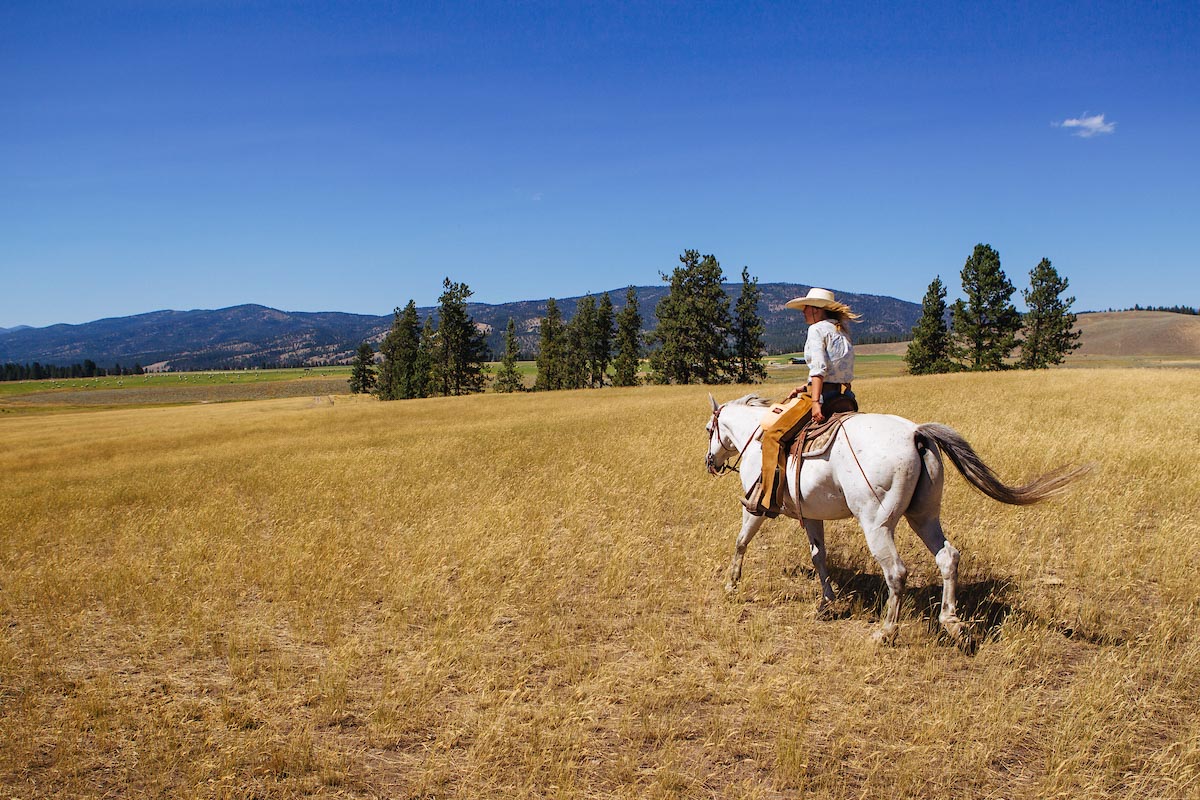Horseback riding, an art combining discipline, patience, and deep connection with nature, is more than just an activity; it’s a transformative experience that challenges and nurtures the mind and body alike. For many, it’s a journey into self-discovery, requiring balance, resilience, and trust—not only in the horse but also in oneself. This process demands dedication, as each ride presents unique challenges, from mastering riding techniques to building a genuine bond with the horse. Through the highs and lows, horseback riding provides valuable life lessons that foster profound personal growth, building self-confidence and patience that extend into all areas of life.
In this article, we’ll explore five major aspects of how horseback riding contributes to personal development, illustrating why so many people embrace this practice for far more than its physical benefits, seeing it as a lifelong pursuit of connection, self-awareness, and emotional resilience.
Building Confidence through Horseback Riding
Confidence is often cultivated through moments of courage and dedication, and horseback riding offers both in abundance. When riders strive to control a powerful animal, it requires a blend of presence, poise, and disciplined control. Over time, the ability to ride and manage a horse builds a unique sense of confidence that extends into many areas of life. Riders learn to push past their fears, continuously improve their skills, and experience the fulfilling challenge of mastering a complex activity. This confidence, developed in the saddle, boosts overall self-esteem and empowers riders to face life’s challenges with renewed courage and strength.
Learning to manage and communicate with an animal as large and sensitive as a horse demands patience, persistence, and an openness to growth. Riders who dedicate themselves to this journey often notice an internal transformation, gaining strength from every incremental improvement and achieving a sense of purpose with each goal reached. Horseback riding becomes a powerful foundation for resilience, teaching riders to remain steady through obstacles and find their footing in uncertain situations—a lesson that resonates far beyond the stables.
Emotional Healing in Horseback Riding
Many riders find that horseback riding can provide significant mental clarity and emotional healing. Spending time outdoors in nature and forming a bond with a horse can create a powerful sense of peace and grounding. Riding a horse requires focus and awareness, which can be a meditative escape from daily stresses. This focus on the present moment allows riders to leave behind worries and anxieties, finding solace in each ride.
Horses have a unique sensitivity to human emotions. Experienced riders, as well as newcomers, often discover that horses can sense subtle emotional cues, which encourages individuals to become more self-aware. This connection provides a therapeutic release, allowing riders to confront their emotions, often without words. For those dealing with anxiety or past trauma, horseback riding offers a way to process feelings while feeling supported by their equine partner.
Through the experience of connecting with a horse, many riders find they’re able to let go of lingering stress and negative emotions. This clarity allows them to approach life with a more balanced perspective, enhancing both emotional health and mental resilience.
Sue Wilbur’s Equine Inspiration
The renowned author Sue Wilbur Writer of Michigan Romance Novels provides a unique perspective on the impact of horseback riding. Wilbur’s stories often capture themes of resilience and growth, many of which draw inspiration from her experiences with horses. For Sue Wilbur, horseback riding has been a source of creativity and personal insight. Her bond with horses has shaped her writing, bringing depth to her characters and giving readers a sense of the healing and empowerment that horseback riding can offer.
Just as riding has influenced Wilbur’s novels, it provides countless individuals with inspiration and personal growth. Her ability to capture the complexities of human emotions in her writing mirrors the real-life experiences many riders face in their equestrian journeys. Wilbur’s work highlights how horses can be mirrors to our inner selves, reflecting our strengths and areas for growth.
Building Patience and Perseverance
In horseback riding, progress doesn’t happen overnight. Riders quickly learn that patience and perseverance are essential. Working with horses requires practice, consistent effort, and an understanding that setbacks are part of the process. The learning curve can be steep, but the rewards are profound for those willing to stay dedicated. Riders develop mental fortitude by working through challenges and learning from each ride.
Horses are responsive but often require time to adapt to new commands, skills, and riders. Patience in handling a horse is essential, as hasty actions or frustrations can disrupt the bond. This slow-building process helps riders foster a sense of patience and understanding. They learn that progress is achieved step-by-step, each small victory adding up to significant milestones over time.
The perseverance built through horseback riding translates into other aspects of life. Riders learn not to give up in the face of difficulties and embrace the importance of long-term commitment. This skill of perseverance is invaluable, equipping individuals to approach personal and professional challenges with patience, dedication, and calmness.
Physical Fitness from Horseback Riding
Beyond the emotional and mental benefits, horseback riding has clear physical advantages. This full-body activity demands core strength, flexibility, and balance, making it a rewarding form of exercise. Riders often notice improved posture, increased strength, and heightened body awareness. Even though horseback riding might seem passive, maintaining balance and control requires significant physical effort.
Every movement the horse makes requires the rider to engage their core muscles to stay balanced. Proper riding posture, leg position, and hand control work together to create a sense of harmony between horse and rider. This harmony not only enhances the riding experience but also encourages riders to be more mindful of their body mechanics.
Physical fitness from horseback riding extends beyond the muscles engaged while riding. It includes greater stamina, better coordination, and overall body awareness. These physical benefits contribute to an individual’s sense of well-being, often motivating riders to pursue a healthier lifestyle.
Cultivating Responsibility
Working with horses requires a high degree of responsibility and empathy. Riders must care for their horses, ensuring they are healthy, well-fed, and prepared for each ride. This care fosters responsibility and respect for another living being, teaching riders the importance of consistency and dedication. For young riders, this responsibility can be particularly impactful, giving them a sense of purpose and dependability.
Empathy is equally essential, as horses are intuitive animals that respond to their riders’ emotions and behavior. Riders who develop a compassionate understanding of their horses learn to communicate effectively and create a trusting partnership. The empathy and respect built in these interactions carry over into relationships with others. Riders become more attuned to non-verbal cues and understand the importance of patience and gentle communication, traits that improve their personal and professional relationships.
Horseback riding offers a transformative path for personal growth, teaching valuable life skills and providing emotional healing. From physical fitness to emotional balance, it’s a journey that shapes and strengthens individuals in unique ways. Many riders find that their time with horses becomes a lifelong pursuit of personal discovery and growth, revealing inner strengths they might not have realized otherwise. Whether inspired by authors like Sue Wilbur or motivated by a desire for self-improvement, horseback riding holds endless potential for those willing to embrace its challenges and rewards.




